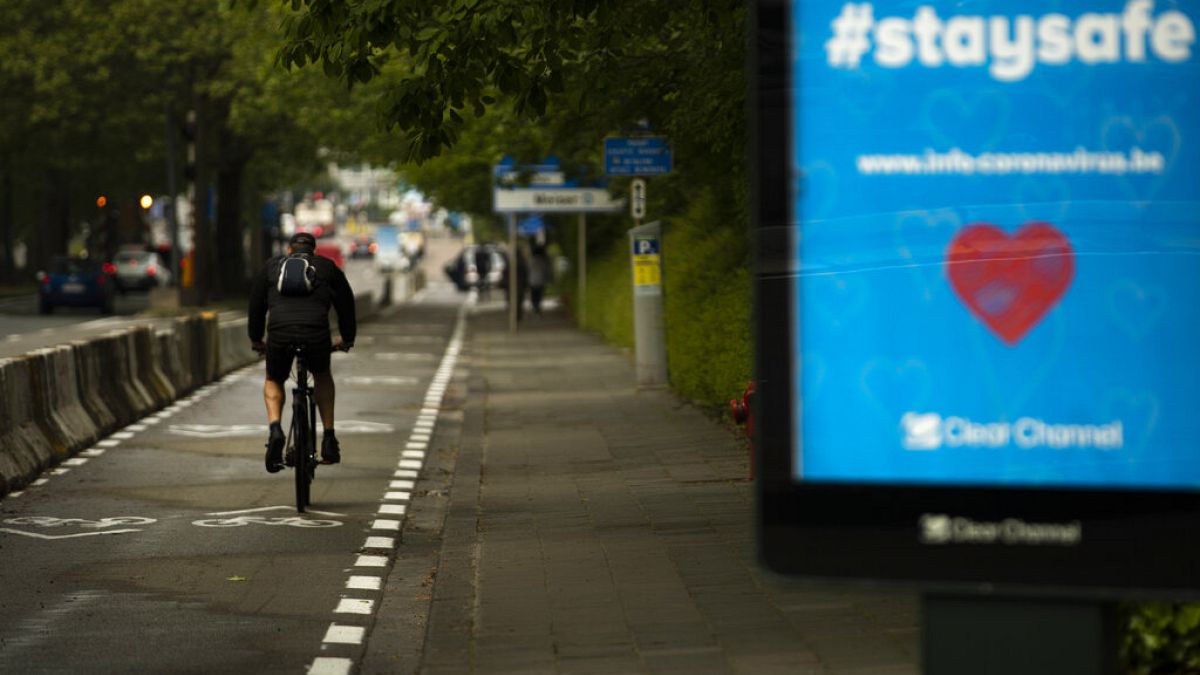There are, of course, those who simply want to get back to work, go to a pub, enjoy their favourite meal in their local restaurant, get on a plane and relax on a beach. There are others, however, who don’t. Euronews political editor Darren McCaffrey explores.
The lockdown has literally been a hairy experience in Germany. Having been closed for months, hairdressers and barbers finally reopened their doors on Monday - much to the relief of the many Germans who had almost reached the point of pulling their hair out. Though some will have to wait and watch that hair grow a little more, as businesses report very long waiting lists.
Europe is slowly, gradually reopening. Hairdressers in Germany join construction workers in Italy and Belgium, restaurateurs in Switzerland and car dealerships in Portugal in getting back to work. But, if imposing lockdowns was a difficult decision, when and how to reopen is fraught with all sorts of pitfalls. Not just balancing a nation's health with its economic well being, but also winning over some who simply don’t want to return to normal.
There are, of course, those who simply want to get back to work, go to a pub, enjoy their favourite meal in their local restaurant, get on a plane and relax on a beach. There are others, however, who don’t. They don’t want to expose themselves to the risk of catching the virus. Most of us have not yet been infected, after all.
I have definitely noticed, when out and about, people who make what feels like a deliberate attempt to get out of my way. As if I am an immediate threat. Maybe you are one of those people and maybe I am, unknowingly, an actual threat.
Older people, those with past or underlying illnesses, are more vulnerable. For them, a simple trip out is a lot riskier than for most younger, healthier people. It is, then, not a surprise that they are less willing to get on a train or go back to the office. For example, an opinion poll in the UK - which has not yet set out a plan to reopen - suggested less than 20 per cent of people asked believe the time is right to consider reopening schools, restaurants, pubs and stadiums.
Essentially some people are understandably frightened; home is a safe space, the only safe space. Others who were convinced by their governments to stay at home, to help protect lives, have followed that advice and have yet to be convinced even when the messaging has changed.
It’s a terrible cliché to say that we are all different, but it is also true. We have coped with our own lockdowns, managed our fears and the limitations to freedoms, as well as the risks we face in our own individual ways, because they are affecting us all individually. But governments need us to act in a relatively uniform way and that will always prove difficult.
We are currently living through a public health, economic, political and social science experiment and no one knows what the results will be, yet, or how society will be when it’s all over.
Darren McCaffrey is Euronews' political editor.



